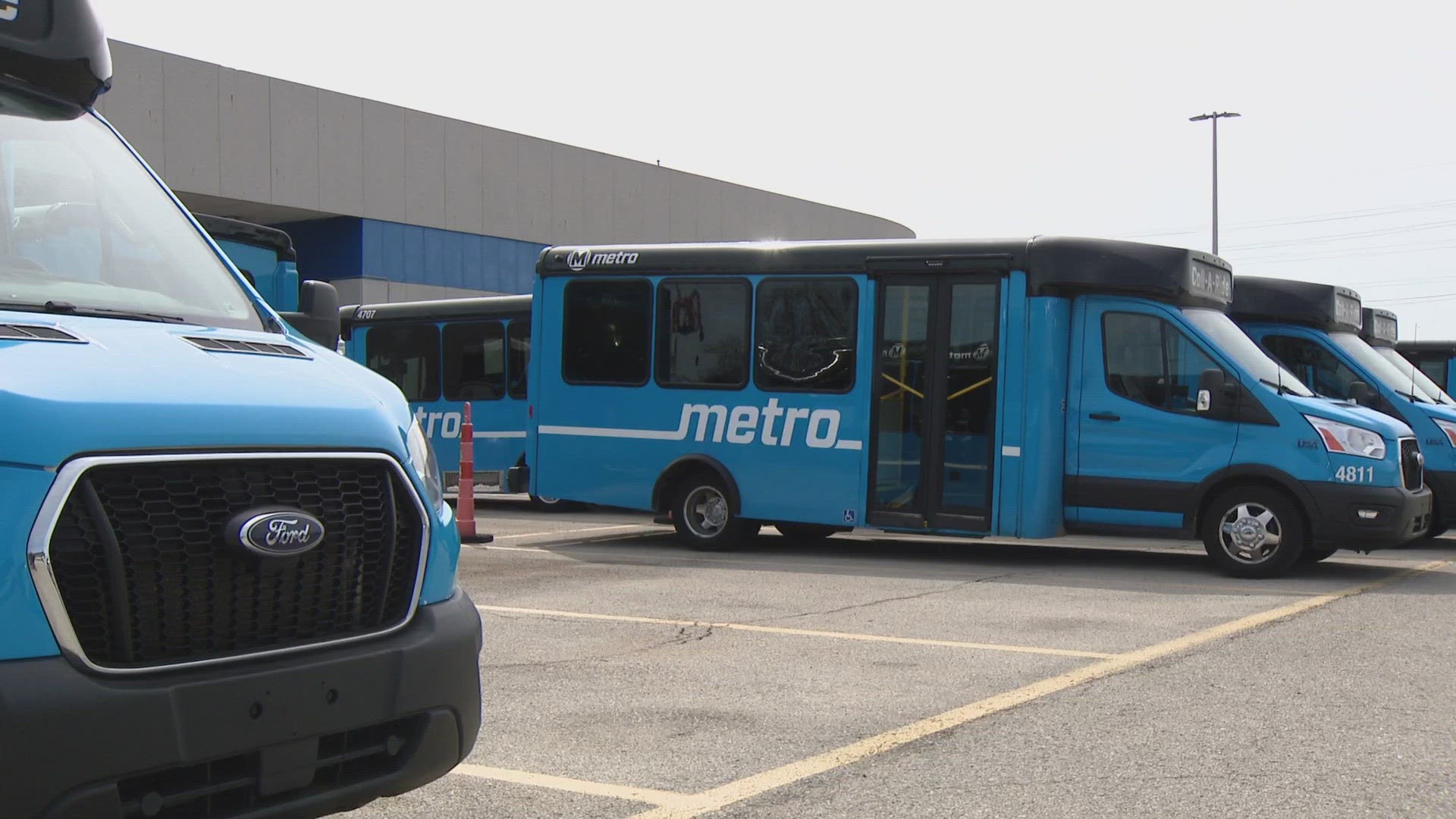ST. LOUIS — Metro Transit will cut down its Call-A-Ride Services starting Monday. Call-A-Ride provides transportation for people with disabilities.
Federal law requires Metro Transit to provide Call‑A‑Ride service within 3/4 of a mile around existing MetroBus and MetroLink routes
Trips that are currently eligible for the Metro Call‑A‑Ride service will no longer be eligible after Monday, April 10, if the start or end point of the trip is outside of the new service area boundaries.
Some riders say they need these services for their day-to-day lives.
"That's the end of my transportation to anywhere," Rhonda Jones said.
Jones said she is scrambling. She moved into her Florissant apartment in February because she says Metro services came to her apartment.
"I don't know how to type on the iPhone, so I don't know how I can get Uber or Lyft," she said.
She said finding alternative transportation routes is difficult because she can't see her phone to research or make calls.
Metro Chief Operating Officer Charles Stewart said the service change has a lot to do with staffing shortages.
“We no longer have the resources to do that, we are short over 80 Call-A-Ride operators, and hence we can’t provide the service we were doing in the past,” he said.
Advocates like Robyn Wallen, the Transportation Committee Chairman for the Missouri Council for the Blind, said these riders deserved more time.
"We've got people that can't just pick up and move and own homes, just like we do. We've got people that have signed apartment leases that cannot get out of those leases. In some cases, it’s a situation where you may live in the service area but your job may no longer be in the service area," she said.
Stewart said they sent letters and postcards to inform riders, but Jones says she wanted more action.
"It's obvious that I'm totally blind and I have been since birth," Jones said. "They sent me a print map of the areas that have been cut."
Wallen said they want Metro Transit to partner with other ride shares.
“We suggested both a two-tiered system or possibly just partnering, expanding Via, partnering with Uber or Lyft,” she said. "We're going to keep pushing for them to push for alternative systems, and if it doesn't, there's going to be a whole lot of people that suffer."
Stuart said Metro Transit is looking at several alternative solutions like these to help riders.
"It's not something that we want to do, it's something we have to do. We are committed to providing services in our disabled community, but unfortunately, we were not providing good services so we’re trying to correct that," he said.
Wallen said she and leaders of several organizations serving people with disabilities and additional community allies filed a complaint regarding Metro’s Call-A-Ride paratransit program with the Disability Rights Section of the Civil Rights Division at the U.S. Department of Justice Friday afternoon.
Aimee Wehmeier, the President of Paraquad, also sent 5 On Your Side this statement:
People with disabilities need reliable and affordable transportation to be a part of the community and to live a typical life. Investing time, energy, and resources into improving transportation services for people with disabilities will benefit our whole community. As the primary transportation provider for people with disabilities in St. Louis, Metro is a logical leader to engage in meaningful dialogue with impacted communities to improve transportation access and quality of life for people with disabilities.

